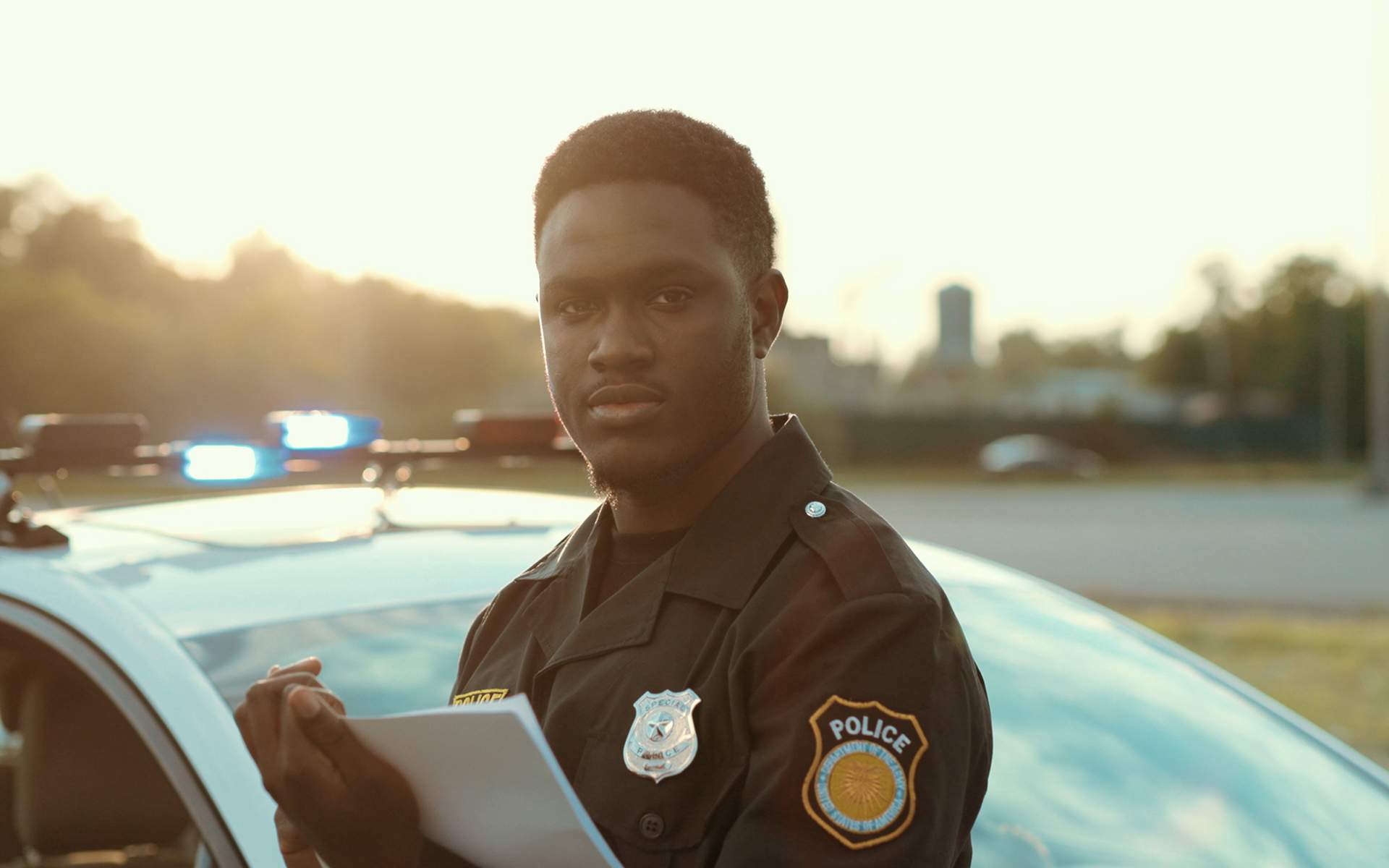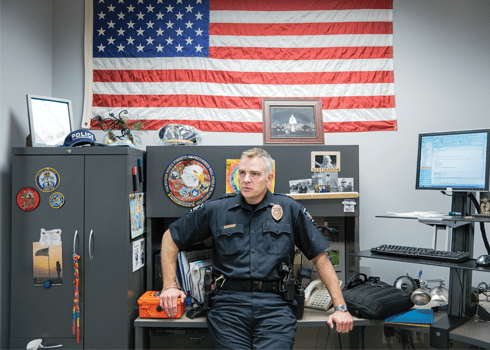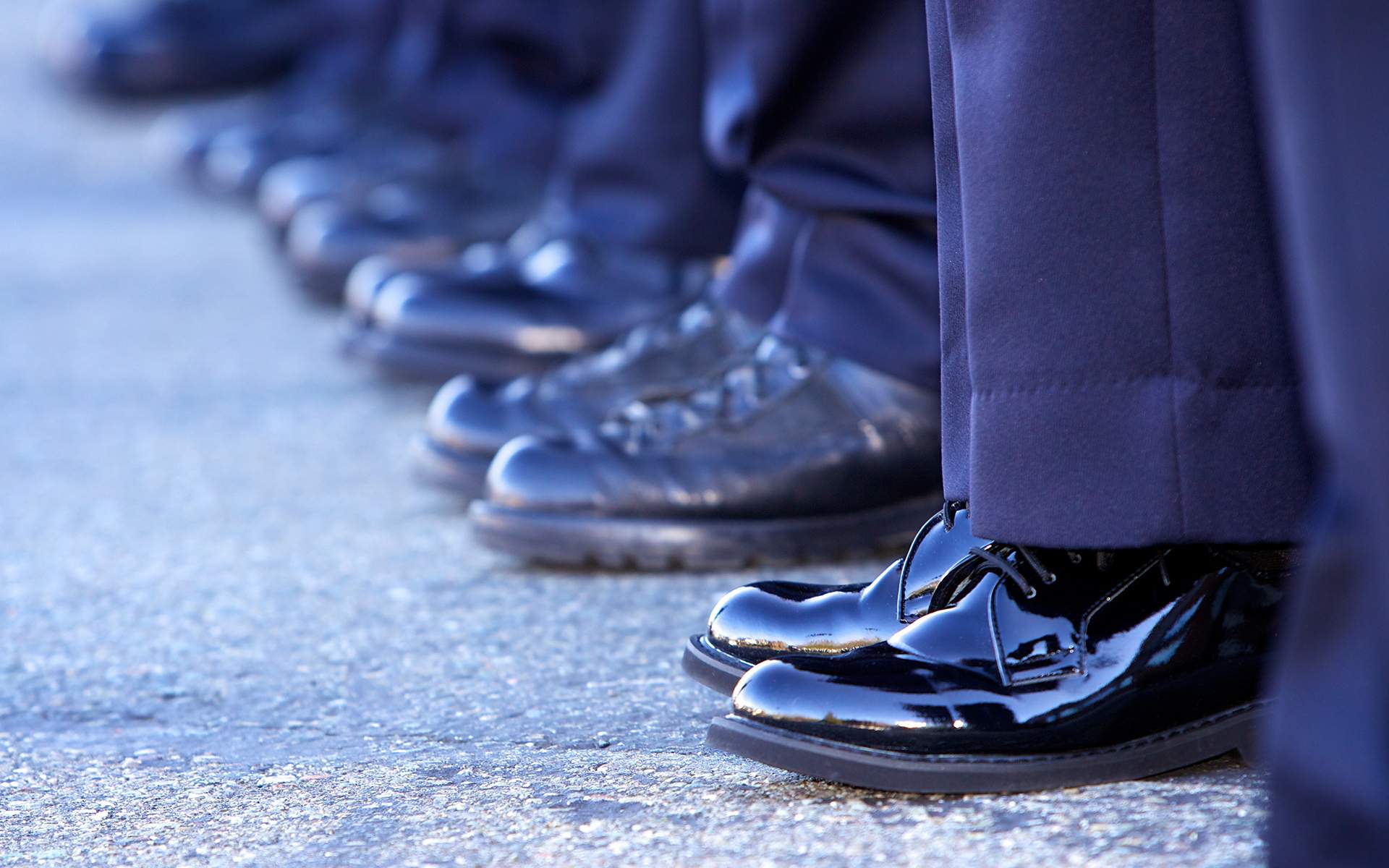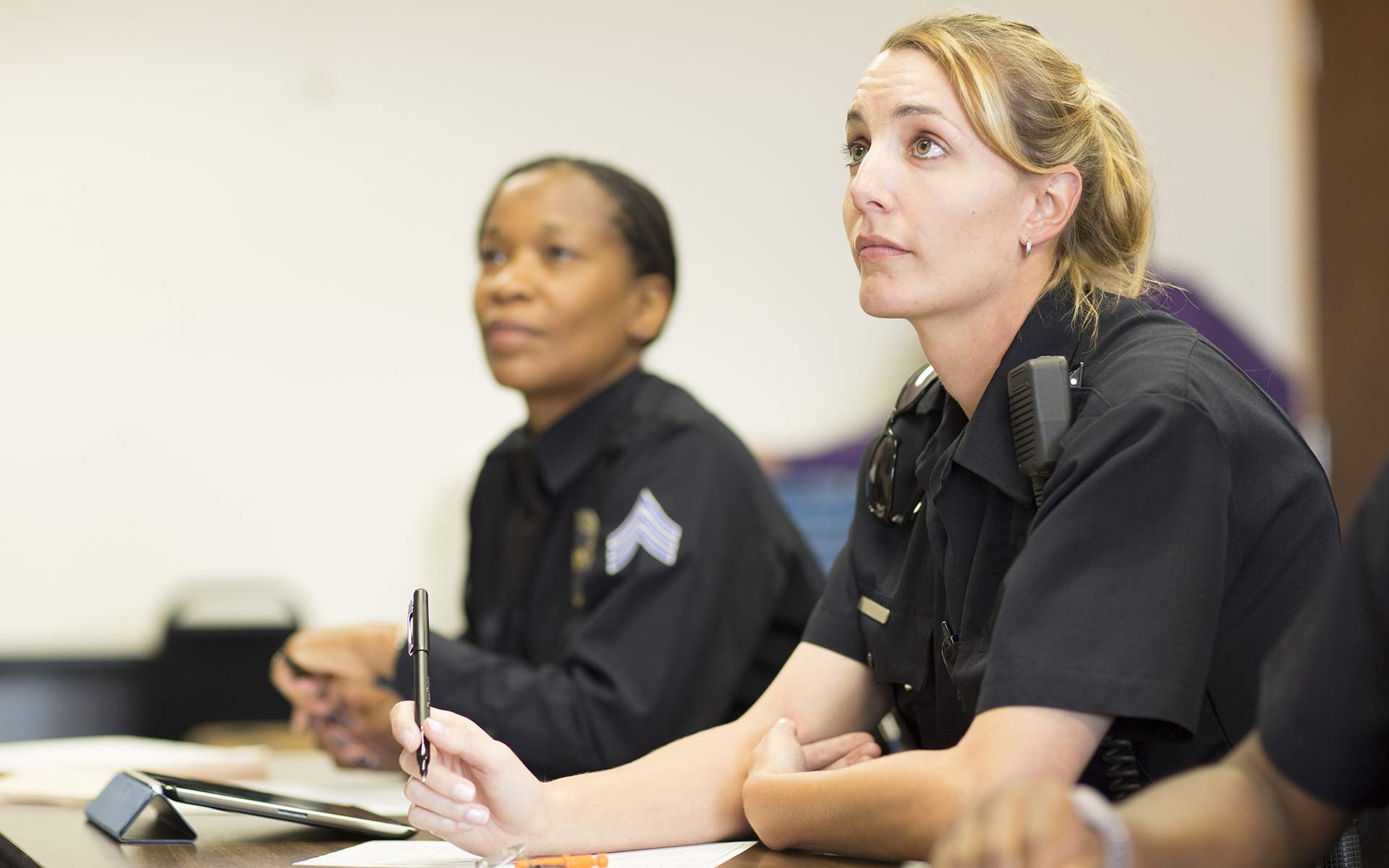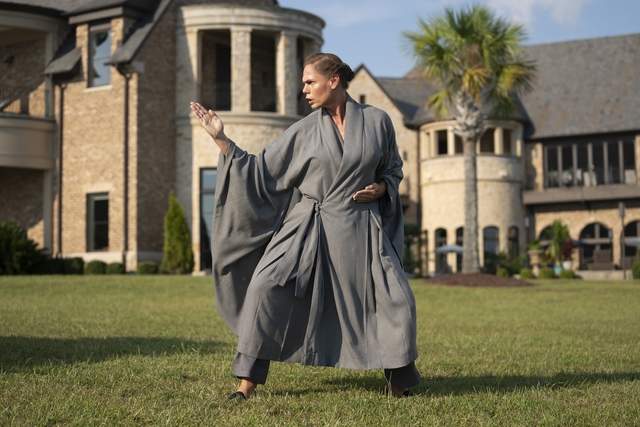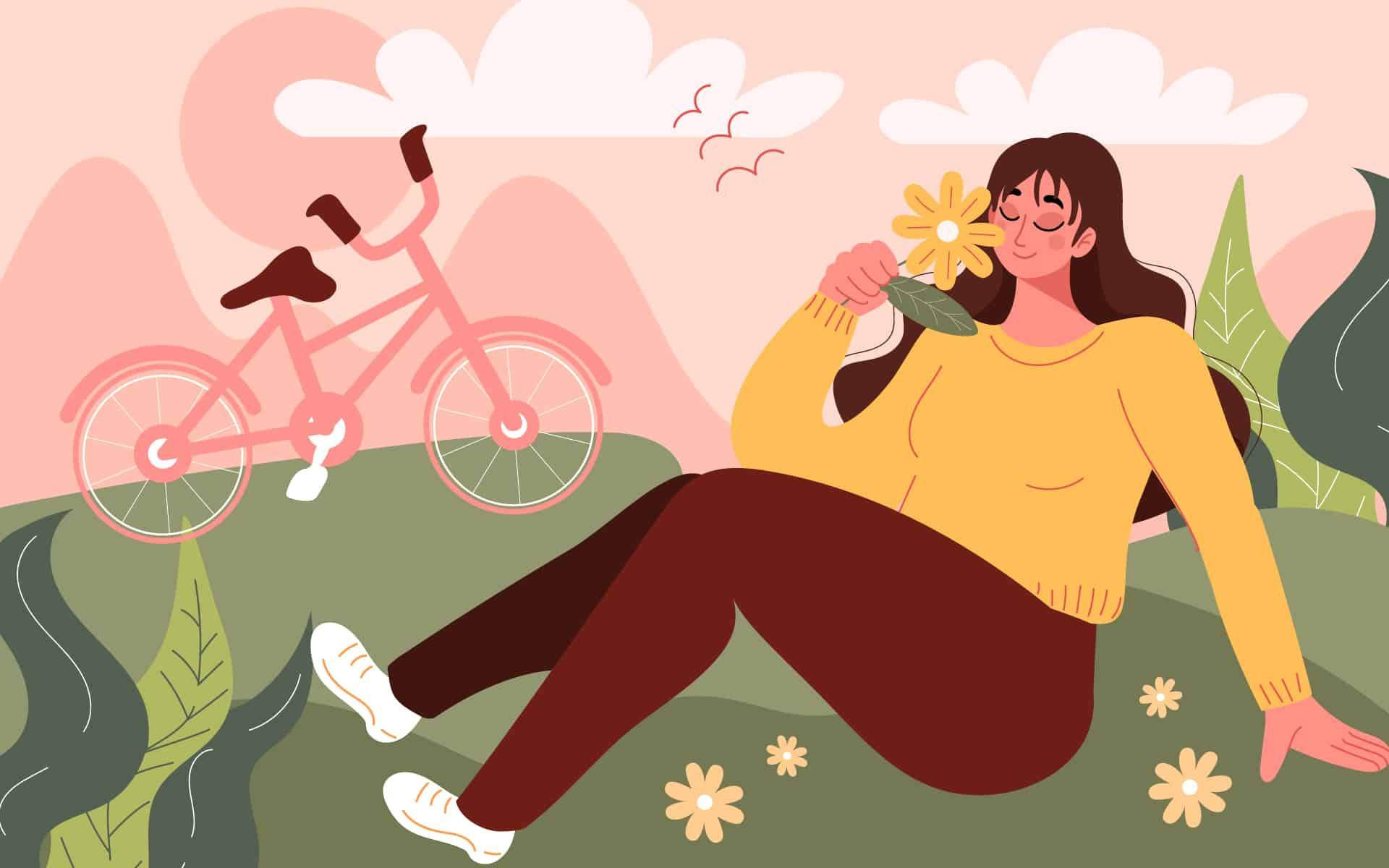Founding Editor Barry Boyce recently sat down—virtually—with Captain Eynat Naor, the Executive Officer of the New York City Police Department’s Health and Wellness Section to talk about the evolving importance of her role. Naor expands on the Health and Wellness Section’s mission to provide the support and tools needed to educate and empower their members to improve their well-being and strengthen their resilience—whether that’s physically, mentally, or emotionally. She also talks about how that could affect policing.
Listen to the full conversation:
Founding Editor Barry Boyce Speaks with Captain Eynat Naor
The NYPD Health and Wellness Section
Barry Boyce: Often health and wellness are divided into physical health and mental health. At Mindful, we like to think in terms of the intersection of those two aspects of wellness and how they’re interrelated as a whole. How do you view that in the Health and Wellness Section of the NYPD?
Eynat Naor: That’s definitely how we view it. Every initiative or program we try to implement is from that holistic lens. And we understand that mental health approaches really align with mindfulness, physical health, and mental well-being. So, our model is really that holistic approach.
We have several members specialized in different disciplines. We have a nutrition coach and personal trainers. I, myself, am a certified yoga teacher and a mindfulness meditation teacher along with another officer on the unit. We also offer programs for financial literacy and retirement wellness. There’s a lot and there’s something for everyone.
Reactions to Mindfulness and Meditation
BB: Often, when the average person hears about mindfulness and meditation or yoga, they think it’s kind of woo-woo and weird. One would think, frankly, of the average police officer as being somebody who might think that. What would you say the response has been in your experience?
EN: I think the stigma around yoga practices is that they will make you too soft. I think a lot of people think that—not just in the police department. There’s also a lot of stigma around: I can’t do yoga because I’m not flexible. I can’t do yoga because I’m not thin or this and that. So we get comments like I’d rather powerlift, skydive, or some other way to get stress out.
When we talk about the program, sometimes we really just talk about the physical aspect of yoga. We have a 20-pound-plus gun belt on all day, the vest can make your shoulders drop, or you crush your chest. Maybe you want to just do yoga to have less back pain, less knee pain, sleep better, improve digestion, things like that.
There’s a lot of resistance to just do nothing. Because then, hey, you’re not being productive.
And then I like to say that it’s just something everybody needs. So you’re stressed out because you’re always busy and on-the-go and then you leave work and have to take care of other people, your family, maybe aging parents. When are you going to take time to just take care of yourself?
We have to. We have to try to pause. And it’s difficult. There’s a lot of resistance to just do nothing. Because then, hey, you’re not being productive. You’re taking time to be still, but in the being still, you are training. So when I’m teaching, I plug the keywords in for them: You are building a skill here. You’re not just sitting here doing nothing. It’s actually not that easy to sit still, just breathe, and then try not to fidget and lose your way in a train of thoughts.
The Benefits of Noticing Reactivity
BB: Have you had people come to you and talk to you about the benefits they’ve found from mindfulness?
EN: Oh, yeah, I got an email yesterday. I sent out the yoga schedule and someone thanked me. He said he had worked late one day and came home to no electricity. And he said, you know what? I think I would have reacted a little bit differently if I hadn’t been taking yoga and meditation with you. I would have thought that this was the end of the world.
And I’ve had other people say somebody bumped into them on the street and instead of reacting right away, they took a breath and realized, okay, this doesn’t really matter.
BB: That’s a classic discovery that folks make: noticing reactivity and having a bit of a pause emerge around your reaction. One of the biggest topics in the press these days concerning police has to do with the ability to deescalate. Do you think the work you’re talking about can contribute to that?
EN: In all that we do for so many other people, we are caregivers. And so our job is to help. You may never be taking the time to connect with yourself. How will you ever know your patterns or your reactivity, if you don’t take time to connect and take care of yourself?
I think it’s a cultural thing, too—not just in the police department. Taking time for yourself might seem selfish but I always say for me, the greatest benefit was just getting to know myself. My relationship with myself improved.
How will you ever know your patterns or your reactivity, if you don’t take time to connect and take care of yourself?
And when you have more compassion for yourself and your flaws, and you understand yourself better, you will have more compassion and understanding over time with others.
BB: Police departments are under increased scrutiny across the country and around the world. How does this current climate affect your work?
EN: It just motivates us even more to keep going, to keep reaching out and finding innovative initiatives for our officers. First you give them what they want, and then give them what they need. I think if they come to just learn about financial literacy or retirement, and then they learn about everything else we do, maybe they’ll be interested. We want to reach their families, too. So we put all of our newsletters together and sent it out in a magazine format. So even the families can read about symptoms and signs of stress, coping, and ways that their family members are supported.
read more
“Police Culture in America Has Lost Its Way”
A police officer of two decades opens up about the protests in Ferguson and New York City and implicit bias in policing.
Read More
Maybe it’s The Barrel: Mindful Policing Gets Real
Founding Editor Barry Boyce speaks with mindfulness trainer and former police lieutenant Richard Goerling on how mindfulness can ground policing in humanity rather than tactics that often result in severe injury and death.
Read More
7 Ways Mindfulness Could Support Compassionate Policing
Founding Editor Barry Boyce considers what contribution mindfulness practice might make to the change people are seeking in police departments.
Read More


